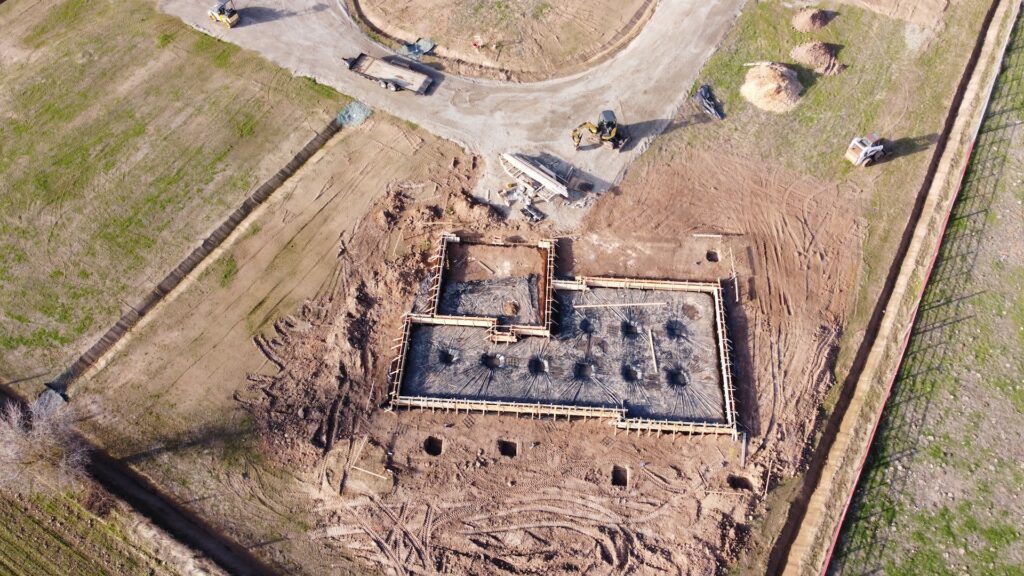
What Do Civil Engineers Do in 2023?
Civil engineering quietly shapes our world, yet its significance often remains understated in the public eye. You may have heard the term “civil engineering” in passing, perhaps from a relative, on the news, or while browsing the web. However, the intricate and essential work of licensed civil engineers often occurs behind the scenes, leaving many with questions about the specifics of their role.
In this blog article, we aim to shed light on the captivating world of civil engineering—what it entails, the daily responsibilities of these dedicated professionals, the skills they employ, and the diverse paths available within this dynamic field. As we embark on this exploration, we’ll uncover the fascinating realm where science meets construction, infrastructure meets innovation, and the ultimate goal is to enhance the quality of life for communities across the globe. Join us as we unravel the mystery behind the question: What do civil engineers do?

Defining Civil Engineering
As the name suggests, civil engineering stands at the intersection of science and construction, representing a branch of engineering dedicated to the conception, construction, and maintenance of public and private structures. The term “civil engineering” emerged in the 18th century, distinguishing itself from military engineering, which held dominance during that era.
The scope of civil engineering is vast and impactful, encompassing the development of roadways, dams, pipelines, buildings, waste management systems, and other critical aspects that shape our communities. Specially trained and licensed civil engineers play a pivotal role in transforming conceptual ideas into tangible structures that define the landscape of our everyday lives.
In the words of Valdengrave Okumu, as cited by the Civil Engineering Portal, “civil engineering embodies a scientific approach to building and design.” Beyond the physical structures, it embodies a commitment to improving the lives of those within our communities by implementing safe, thoughtful, and efficient infrastructure projects.
In the following sections, we will delve into the multifaceted responsibilities of civil engineers, offering a glimpse into their daily activities, the skills they bring to the table, and the diverse industries where their expertise is indispensable. Let’s uncover a profession’s intricacies that play a foundational role in shaping our world.
Daily Responsibilities of Civil Engineers
Now that we have a clear understanding of what civil engineering entails let’s delve into the day-to-day responsibilities that define the work of these dedicated professionals. According to the U.S. Bureau of Labor Statistics (BLS), civil engineers shoulder various tasks that contribute to the planning, developing, and maintaining vital infrastructure. Here’s a closer look at their daily responsibilities:

1. Designing New Civil Engineering Projects
Civil engineers are the architects of infrastructure. They conceptualize and design new projects, employing their expertise to create innovative solutions that address the needs of society. From bridges and buildings to water supply systems, their designs shape the physical environment.
2. Analyzing and Preparing Reports, Maps, and Budgets
A crucial aspect of civil engineering involves analyzing data and preparing detailed reports, maps, and budgets. This meticulous work ensures that projects align with regulatory requirements, budget constraints, and other considerations essential to project success.
3. Organizing Permit Applications
Navigating the bureaucratic landscape is a part of a civil engineer’s routine. They prepare and submit permit applications to local, state, and federal agencies, ensuring that projects comply with regulations before groundbreaking.
4. Meetings with Project Managers and Government Officials
Effective communication is paramount in civil engineering. Engineers frequently meet with project managers and government officials to discuss project planning, address concerns, and ensure alignment with overarching goals and regulations.
5. Developing Plans for Infrastructure Repair or Replacement
Beyond creating new structures, civil engineers are instrumental in assessing existing infrastructure. They develop plans for repairing or replacing aging structures, applying their expertise to enhance safety, functionality, and longevity.
6. Staying Informed about Zoning Laws and Regulations
The regulatory landscape is dynamic, and civil engineers must stay abreast of zoning laws and regulations changes. This knowledge ensures that their projects remain compliant and responsive to evolving legal requirements.
As civil engineers gain experience, they may progress into project management roles, supervising projects and ensuring that teams adhere to safety and legal guidelines. This supervisory aspect adds another layer to the multifaceted role of a civil engineer.
The following section will explore the diverse skills required to excel in this profession, ranging from technical competencies to essential soft skills.
Skills Required for Civil Engineers
Embarking on a career in civil engineering demands a diverse set of technical and interpersonal skills. Whether you’re designing a new bridge or overseeing the repair of existing infrastructure, civil engineers rely on a comprehensive skill set to navigate the complexities of their profession. Here are the essential skills every civil engineer should possess:
Technical Skills
In the realm of technical skills, civil engineers navigate intricate calculations and mathematical models in their daily work. Proficiency in mathematics is foundational, serving as a fundamental tool for tasks ranging from structural analysis to budget estimations. Understanding physics principles is equally crucial, especially when designing structures that must withstand various forces, ensuring the safety and stability of buildings, bridges, and other projects.
In environmental engineering, civil engineers often delve into issues related to water quality, pollution, and waste management, necessitating a solid foundation in chemistry. Another vital technical skill is interpreting and creating detailed maps and blueprints. Civil engineers must be competent to visualize and communicate complex design concepts through these technical drawings.
Moreover, modern civil engineering relies heavily on computer-aided design (CAD) software. Proficiency in tools like Civil 3D and AutoCAD is essential for drafting and modeling infrastructure projects, showcasing technology integration into the fabric of civil engineering.
Soft Skills
Beyond technical proficiency, civil engineers rely on a spectrum of soft skills that enhance their effectiveness in the field. Effective communication is paramount, as civil engineers must articulate complex technical information in reports, proposals, and project documentation. This proficiency in technical writing is a valuable skill that bridges the gap between technical expertise and clear, accessible communication.
Civil engineers are naturally problem solvers, encountering diverse challenges in their projects. Analyzing problems critically and devising innovative solutions is crucial for overcoming obstacles in project design and implementation. Collaboration is inherent in civil engineering projects, requiring effective communication with diverse teams, including architects, contractors, and government officials, to ensure project success.
Time management is a critical soft skill for civil engineers who must balance multiple tasks and adhere to project timelines. Efficient allocation of resources and prioritization of activities are essential for meeting deadlines and ensuring the smooth progression of projects. As engineers progress in their careers, leadership skills become imperative, whether supervising a team or managing entire projects. Effective leadership ensures the successful execution of engineering endeavors and contributes to the overall success of civil engineering initiatives.
The following section will explore the common industries where civil engineers contribute their expertise and the fascinating career paths within this dynamic field.

Common Industries for Civil Engineers
Civil engineers are foundational in shaping the infrastructure that sustains our communities. Their expertise extends across many industries, each relying on unique skills to address diverse challenges. Here’s a glimpse into the common industries where civil engineers make significant contributions:
Civil engineers play a vital role in the agricultural sector by contributing to the design and implementation of infrastructure crucial for efficient farming practices. Their involvement extends to developing irrigation systems and drainage solutions, enhancing agricultural operations’ overall productivity and sustainability.
Collaboration with architects defines the role of civil engineers in the field of architecture. Working closely with architectural professionals, civil engineers ensure that the structural elements of buildings and other architectural projects are aesthetically pleasing, sound, safe, and compliant with building codes. This collaboration emphasizes the seamless integration of engineering expertise into the broader realm of architectural design.
Civil engineers take on projects within the aviation industry that shape the landscape of airport design, runway construction, and aviation infrastructure development. Their contributions are geared towards enhancing safety and efficiency, playing a pivotal role in the functionality and compliance of aviation facilities.
The construction industry heavily relies on civil engineers for project planning, design, and on-site management. Civil engineers ensure that construction projects adhere to specifications, budgets, and safety standards, contributing to successfully executing a wide range of infrastructural developments.
Government agencies at various levels engage civil engineers to contribute their expertise to public infrastructure projects. This encompasses the planning and executing roads, bridges, water supply systems, and other essential components of public works. Civil engineers become integral contributors to developing and maintaining the infrastructure that serves communities on a local, state, and federal level.
Civil engineers play a significant role in developing infrastructure for oil and gas extraction in the energy sector. This includes designing and constructing pipelines, refineries, and facilities that adhere to rigorous safety and environmental standards, ensuring responsible practices in the extraction and processing of energy resources.

Transportation infrastructure, such as highways, bridges, and transit systems, is a critical focus for civil engineers. They aim to create efficient, safe, and sustainable transportation networks, addressing the ever-growing demands of a connected and mobile society.
Civil engineers also play a critical role in designing and managing waste treatment and disposal systems. This includes projects related to landfills, recycling facilities, and wastewater treatment plants, contributing to environmentally conscious practices and the effective management of waste.
Ensuring a sustainable and reliable water supply is paramount, and civil engineers actively work on projects related to water resource management. This includes designing and constructing dams, reservoirs, and water distribution systems, shaping the responsible utilization of water resources for communities and industries alike.
As you consider a career in civil engineering, the diverse range of industries offers opportunities to align your passion with the specific sector that resonates with you. The following section will explore the considerations around salaries for civil engineers and the benefits of pursuing a career in this dynamic field.
Other Civil Engineering Careers
A degree in civil engineering opens doors to a spectrum of career paths beyond the traditional role of a civil engineer. Professionals with a background in civil engineering find themselves equipped with a versatile skill set that transcends boundaries. Here are some alternative career paths that individuals with a civil engineering degree might pursue:
Environmental Engineers
Environmental engineers address the intricate relationship between humans and the natural world. Their work often focuses on improving recycling processes, water management systems, and air pollution levels. They play a vital role in creating sustainable solutions to environmental challenges.
Urban or Regional Planners
Urban planners shape communities through land-use planning. They work on creating sustainable and functional spaces, considering factors such as population growth, infrastructure development, and changes in zoning laws. Field investigations, meetings with government officials, and strategic planning are integral to their role.
Surveyors
Surveyors utilize advanced technologies like GPS and GIS to measure and define boundary lines, ensuring land is used safely and legally. Their work involves spending time outdoors conducting surveys and collaborating with engineers, ultimately contributing to accurately mapping land.
While these alternative careers represent just a snapshot of the possibilities, they highlight the versatility of a civil engineering degree. The foundational knowledge and skills acquired during education enable individuals to pivot into various roles that align with their interests and passions.
In the next section, we’ll explore the overarching versatility of civil engineering degrees, showcasing the compelling range of duties that individuals can undertake in this dynamic field.

Conclusion
In unraveling the multifaceted world of civil engineering, we’ve journeyed through the core responsibilities, essential skills, and diverse industries that define this dynamic profession. Civil engineers, the unsung heroes of infrastructure, bridge the realms of science and construction to shape the very fabric of our communities.
From designing new projects to navigating permit applications, civil engineers are architects of progress, working diligently to improve the quality of life for those they serve. Their technical prowess and soft skills like effective communication and critical thinking form the bedrock of their success.
As we’ve discovered, civil engineering is not confined to traditional roles alone. A civil engineering degree opens gateways to diverse career paths, from environmental engineering to urban planning and surveying. The versatility of this field allows professionals to find their niche and make impactful contributions across various sectors.
For those considering a career in civil engineering, the benefits are not only monetary but extend to the fulfillment derived from working in a profession that leaves a lasting imprint on society. Civil engineering offers a wealth of opportunities, whether you’re drawn to aviation, agriculture, or the intricate planning of urban spaces.
So, to aspiring civil engineers, environmental visionaries, and urban planners, know that your journey in civil engineering is one of continual growth and discovery. As you embark on this path, remember that your role transcends construction—it’s about building a sustainable, resilient future for generations to come. Embrace the challenges, celebrate the victories, and shape a world where infrastructure meets innovation.

Jason Somers, President & Founder of Crest Real Estate
With over 15 years of professional experience in the Los Angeles luxury real estate market, Jason Somers has the background, judgement and track record to provide an unparalleled level of real estate services. His widespread knowledge helps clients identify and acquire income producing properties and value-ad development opportunities.
Learn more about Jason Somers or contact us.



